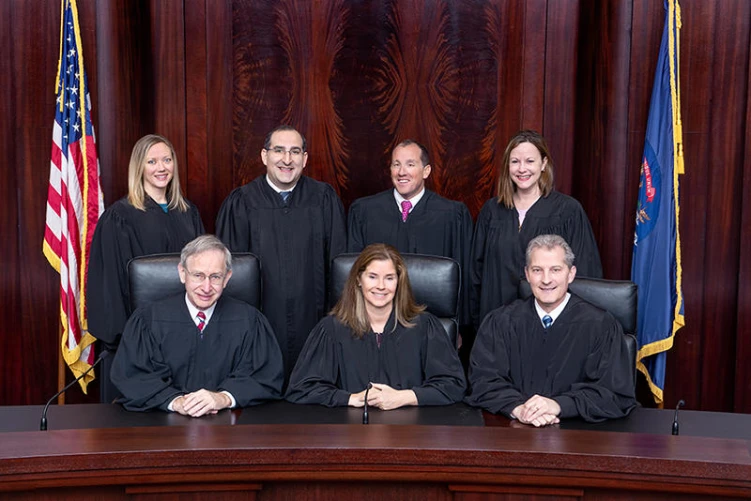- Domestic abuse is any form of physical or emotional abuse inflicted by one person on another within an intimate relationship.
- It includes verbal or psychological mistreatment and physical acts such as hitting, kicking, pushing, or restraining.
- Different types of domestic abuse can include physical abuse, emotional abuse, mental abuse, sexual abuse, and financial abuse.
- Getting help is important — reach out to organizations such as shelters, family lawyers, police departments, and other resources.
Domestic abuse is a serious issue that affects many people in our society, but it doesn’t have to define your life. This guide will cover the different types of domestic abuse and how you can recognize them and get help if needed. We will also look at ways to protect yourself from future violence and provide resources for further support. With the right information, you can take control of your situation and begin to heal.
What Is Domestic Abuse?
Domestic abuse is any form of physical or emotional abuse inflicted by one person on another within an intimate relationship. This includes verbal or psychological mistreatment and physical acts such as hitting, kicking, pushing, or restraining. Domestic abuse can happen to anyone regardless of gender, age, sexual orientation, race, culture, and economic status.
Types of Domestic Abuse
Domestic abuse is a severe problem that can take many forms, from physical and psychological violence to coercion and control. Knowing the different types of domestic abuse and how they manifest is essential in recognizing when abuse occurs and seeking help.
Physical Abuse
Physical abuse includes any act that causes physical pain or injury, such as punching, slapping, kicking, or choking. It also includes the use of weapons such as guns or knives. Physical abuse may be done with intent to harm or out of anger or frustration. Victims of physical abuse can suffer a range of negative consequences, including physical pain and injury, emotional distress, fear, anxiety, and depression.
Emotional Abuse
Emotional abuse is defined as a pattern of behavior designed to control another person through psychological manipulation and threats. Examples include verbal insults, belittling comments, and controlling behaviors like isolating someone from friends and family or forcing them to do tasks against their will.
Mental Abuse
Mental abuse is any act that causes mental anguish or distress. Examples include threats of physical violence, constant criticism and humiliation, and manipulation techniques such as gaslighting. Mental abuse can occur in any relationship, including family, intimate partners, and friendships.
Sexual Abuse
Sexual abuse involves any unwanted sexual contact without the victim’s consent. It includes rape, sexual coercion, and other non-consensual sexual activity. It can also include situations where an individual is forced to participate in sexual activity against their will, such as cases of human trafficking. Sexual abuse can occur between two people of any gender or age and can have serious physical, psychological, and emotional consequences for the victim.
Financial Abuse
Financial abuse occurs when one partner uses money or resources to control the other. This includes denying a partner access to funds, forcing them to give up their paychecks, or using financial threats as intimidation. Financial abuse is a form of domestic violence that often goes unnoticed and can have devastating consequences. Victims of financial abuse may struggle to pay bills, access medical care, or even secure necessities like food and housing.
Recognizing Domestic Abuse

Domestic abuse is often subtle and can be difficult to recognize. Some signs include:
- Unwarranted jealousy
- Controlling behavior, such as limiting who you see or where you go
- Making threats or using intimidation tactics
- Isolating you from friends and family
- Blaming you for their violent outbursts or verbal attacks
- Financial control, such as withholding money or not allowing you access to your own accounts.
If these signs sound familiar, you must reach out for help. Regardless of the type of domestic abuse you’re experiencing, don’t hesitate to seek the help you need.
Getting Help
If you find yourself in a situation of domestic abuse, it is vital to reach out for help. Several organizations provide aid and support, such as shelters and hotlines. It’s also advisable to get in touch with a lawyer specializing in family law to get the protection and legal aid you need. A lawyer can help you file a restraining order and other necessary legal measures, such as obtaining guardianship and custody. You can also contact your local police department if necessary.
Here are some other helpful resources:
- National Domestic Violence Hotline
- National Coalition Against Domestic Violence
- National Resource Center on Domestic Violence
- Office on Violence Against Women
Protecting Yourself
Knowing how to protect yourself if you are in a domestic abuse situation is important. Here are some tips:
- Have a safety plan: Make sure you have an escape route and know the numbers of people you can call on if needed.
- Keep your phone charged: Always have access to communication in case of an emergency.
- Let someone know: Make sure a close friend or family member knows what is going on and can reach out to you if they are concerned.
- Document everything: Keep track of any evidence you could use in court, such as text messages, emails, voicemails, photographs, etc.
- Keep important documents with you: Have copies of your driver’s license, passport, birth certificate, and other important documents with you at all times.
In Summary
Domestic abuse is a critical issue that demands urgent attention. It is important to recognize the signs of abuse and seek help if you or someone you know is in an abusive relationship. There are several resources available to victims, including hotlines and shelters, as well as lawyers specializing in family law who can help with legal protection. It is also important to have a safety plan and keep important documents with you at all times. With the right information, victims of domestic abuse can take control of their situation and begin to heal. No one should have to suffer in silence—don’t hesitate to reach out for help.



